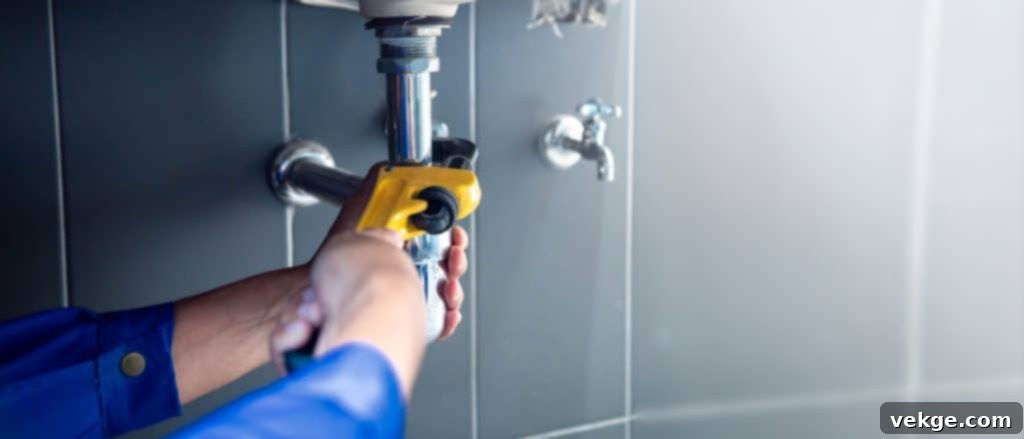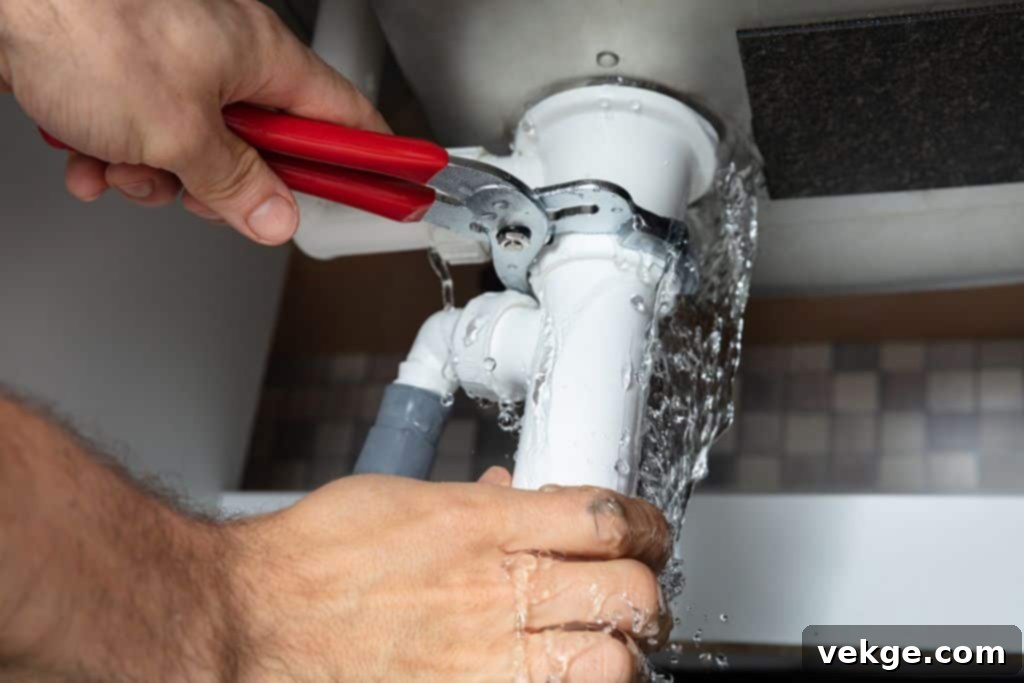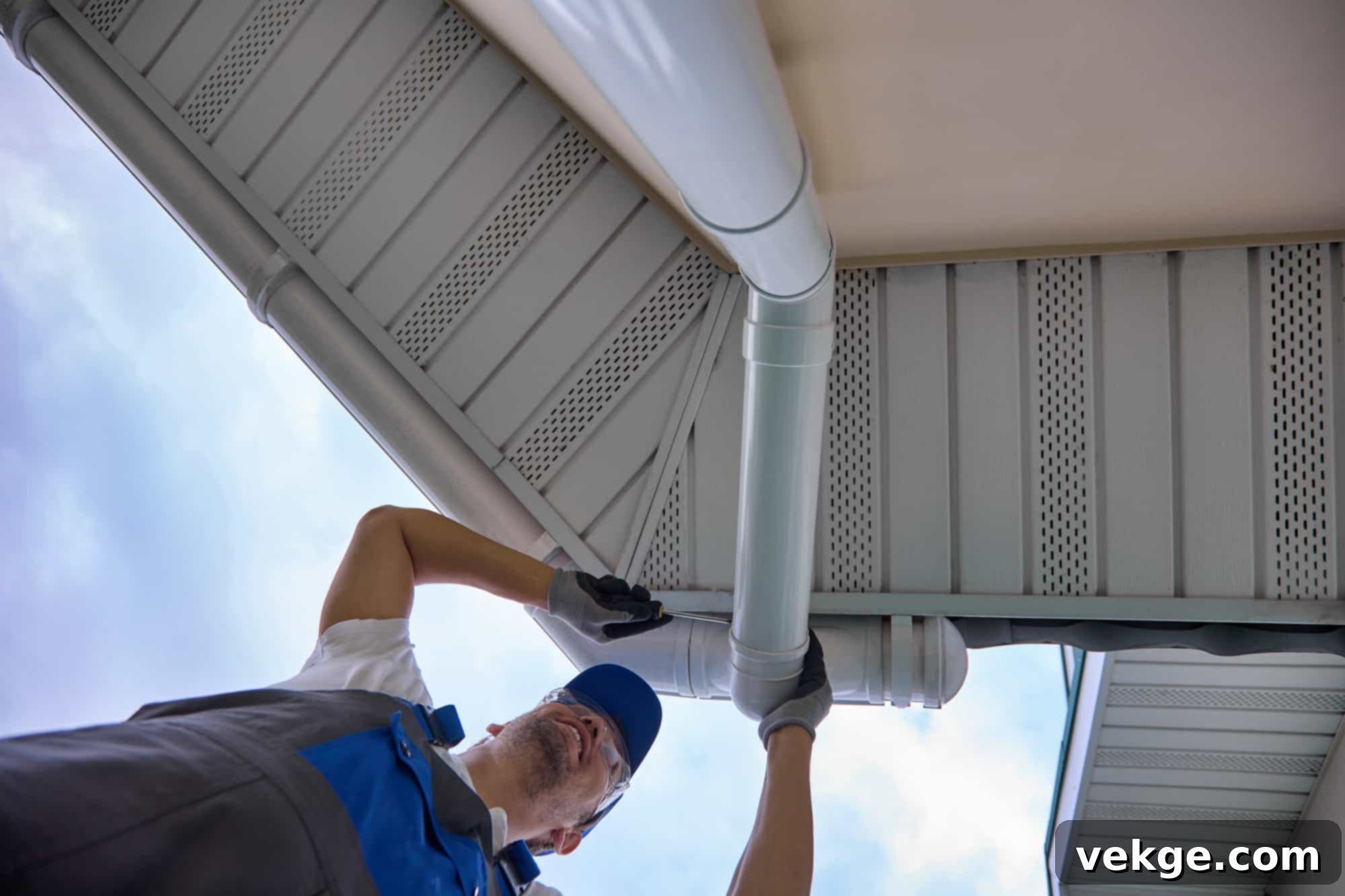The Ultimate Guide to Home Repiping: Unveiling 8 Key Benefits for a Healthier Home
Is your home showing signs of an aging plumbing system? Perhaps you’re experiencing fluctuating water pressure, discolored water, or an unexpected spike in your utility bills. These are common indicators that your pipes might be nearing the end of their lifespan. Repiping a home, which involves replacing old, deteriorated pipes with new, robust ones, is a significant undertaking, yet it promises a dramatically more efficient, reliable, and safer plumbing system for years to come.
While the initial thought of a comprehensive repiping project might seem daunting due to the investment required, it’s crucial to view it as a foundational upgrade that offers profound long-term benefits, far outweighing the upfront costs. Engaging with a trusted repipe specialist in Tucson or your local area is the first step. These experts can provide a thorough assessment, a clear understanding of the process, and detail the extensive advantages tailored to your home’s specific needs.
This comprehensive guide delves into the most significant advantages of repiping your home, illustrating why this essential upgrade is not just a repair, but a wise and invaluable investment in your property’s future and your family’s well-being.
Improved Water Quality for Health and Comfort
The quality of your tap water is paramount. It impacts everything from the taste and purity of your drinking water to the effectiveness of your cooking, and the safety of the water you use for bathing and laundry. Old and corroded pipes, especially those made from galvanized steel or lead (common in older homes), can severely compromise this vital resource.
Over time, these materials degrade, leaching rust, lead particles, copper corrosion, and other harmful contaminants directly into your water supply. This can lead to a metallic taste, unpleasant odors, discolored water, and visible sediment. More critically, it poses serious health risks, including developmental issues in children, neurological damage, and gastrointestinal problems. Beyond health concerns, these contaminants can also stain your plumbing fixtures, tubs, sinks, and even your laundry, turning whites yellow or brown.
By opting to repipe your home, you are making a direct investment in clean, safe, and pure water. Modern piping materials like copper, PEX (cross-linked polyethylene), or CPVC are renowned for their longevity, corrosion resistance, and inertness, meaning they won’t degrade and introduce harmful substances into your water. These materials ensure that the water flowing to your taps is as clean as it was when it entered your home’s plumbing system, protecting your family’s health and preserving the aesthetics of your home. It’s always a good idea to discuss the best material options for your specific climate and water chemistry with your repipe specialist.
Restored and Increased Water Pressure
There are few things more frustrating than a shower that barely drizzles or waiting an eternity for a pot to fill in the kitchen. Low water pressure is a common complaint in older homes, and it significantly impacts daily convenience and the efficiency of water-using appliances.
The primary culprit behind diminishing water pressure in aging homes is often the gradual buildup of mineral deposits, rust, and other sediment inside the pipes. This accumulation, known as scale, effectively narrows the internal diameter of the pipes, restricting water flow and causing a noticeable drop in pressure. Additionally, leaks in old pipes can also contribute to pressure loss, as water escapes before reaching its intended destination. This can make simple tasks like washing dishes, doing laundry, or taking a shower feel like a major inconvenience, especially when multiple fixtures are in use simultaneously.
Repiping directly addresses these blockages and restrictions by installing brand-new pipes with full, unobstructed internal diameters. This process immediately restores your water pressure to its optimal level, ensuring a consistent and robust flow throughout your home. You’ll experience invigorating showers, quickly filled bathtubs, and efficient appliance operation, making everyday tasks much more pleasant and less time-consuming. Regular maintenance checks after repiping can further ensure your new pipes remain free from buildup, keeping your water pressure consistently strong for years to come.
Proactive Prevention of Costly Water Damage

Water damage stemming from leaking or burst pipes can quickly turn into a homeowner’s worst nightmare. The consequences are far-reaching, leading to incredibly expensive repairs, structural integrity issues, widespread mold growth, and potential health problems from airborne mold spores. Old, brittle, or corroded pipes are frequently the culprits behind such devastating damage, often failing without much warning.
These pipes develop pinhole leaks, cracks, or even burst under pressure due to age, material fatigue, or freezing temperatures. A small, unnoticed leak behind a wall can lead to extensive damage to drywall, flooring, electrical systems, and insulation over time, creating hidden reservoirs for mold and mildew. A sudden burst pipe can unleash gallons of water in minutes, causing immediate and catastrophic harm.
By undertaking a comprehensive repiping of your home, you are essentially preventing these catastrophic leaks and failures before they have a chance to occur. You replace a system prone to failure with one designed for durability and resilience. This proactive approach safeguards your home’s structural integrity and interior from the destructive effects of water damage, saving you immense stress, time, and money on emergency repairs and restoration. Even after repiping, it’s wise to remain vigilant for subtle signs of leaks, such as unexplained damp spots, musty odors, or sudden spikes in your water bill, as early detection can prevent minor issues from escalating.
Enhanced Plumbing System Longevity and Reliability
Repiping your home is a forward-thinking investment in the long-term health and functionality of your property. Modern plumbing technologies have revolutionized pipe manufacturing, producing materials that are vastly superior to those used decades ago. Today’s pipes are specifically engineered for extended durability, offering enhanced resistance to common issues that plague older systems, such as corrosion, mineral buildup, and leaks.
Materials like PEX, for instance, are flexible, resistant to freezing, and do not corrode, making them an excellent choice for longevity. Copper pipes, while more traditional, are also highly durable and resistant to bacterial growth. By upgrading to these contemporary materials, you significantly extend the lifespan of your entire plumbing system, often guaranteeing decades of trouble-free operation. This not only translates into substantial savings by minimizing the need for frequent, costly repairs and patching up old leaks, but also provides invaluable peace of mind, knowing that your home’s most essential utility infrastructure is robust and reliable. It’s also crucial to select a reputable repipe specialist who can expertly recommend the best materials and installation techniques suited for your specific home and local conditions, ensuring the maximum possible longevity for your new system.
Increased Property Value and Market Appeal
In the competitive real estate market, a home that has been recently repiped stands out as a highly attractive feature for potential buyers. Modern buyers are increasingly savvy, looking for properties that are truly move-in ready, requiring minimal immediate repairs or major upgrades. An outdated plumbing system, often flagged during a home inspection, can be a significant deterrent, leading to lower offers or even scaring off prospective buyers entirely due to the anticipated hassle and expense of future plumbing issues.
Conversely, a newly repiped home signals to buyers that a major, often hidden, maintenance item has been professionally addressed. This upgrade reassures them that they won’t face unexpected costs or disruptions shortly after moving in. This transparency and proactive maintenance not only make your home more appealing and easier to sell but can also significantly increase your home’s value and lead to a quicker sale. Documenting the repiping process thoroughly, keeping all warranties, permits, and certifications, provides tangible proof of the upgrade, adding verifiable value during the appraisal and sale process. This investment can yield a substantial return when it’s time to sell.
Significant Reduction in Plumbing Emergencies

The inconvenience, stress, and substantial cost of emergency plumbing repairs can be one of the most significant stressors for homeowners. Burst pipes, major leaks, or sudden drain collapses occurring in the middle of the night or during a holiday can cause immediate panic, widespread damage, and require expensive, urgent intervention. These emergencies are often the culmination of years of deterioration in an old plumbing system.
By upgrading to a brand-new, modern plumbing system through repiping, the likelihood of experiencing these unexpected and disruptive issues is dramatically reduced. New pipes, correctly installed by qualified professionals, are designed to withstand normal wear and tear, pressure fluctuations, and environmental stressors far better than their aged counterparts. This proactive measure means fewer middle-of-the-night calls to an emergency plumber, less disruption to your daily life, and a considerable reduction in unforeseen repair expenses.
Establishing a relationship with a reliable plumbing service that offers regular preventative check-ups even after repiping can further enhance this peace of mind. They can help catch any minor issues before they have a chance to escalate into costly and inconvenient emergencies, ensuring your new system operates flawlessly for decades.
Improved Energy Efficiency
An often-overlooked benefit of repiping is the significant improvement in your home’s energy efficiency. Old, corroded pipes, especially those carrying hot water, are notoriously inefficient. They can lose a substantial amount of heat as water travels from your water heater to your fixtures, forcing your water heater to work harder and longer to maintain desired temperatures. Furthermore, constricted pipes due to mineral buildup make your entire water distribution system work harder, potentially stressing pumps and other components.
With new pipes, particularly those made from modern materials like PEX or properly insulated copper, heat loss is significantly minimized. These materials often have better insulating properties or are easier to insulate effectively, meaning hot water stays hotter for longer as it travels through your home. This reduces the workload on your water heater, leading to lower energy consumption for heating water. The improved flow and pressure from clean, unobstructed pipes also mean your system doesn’t have to exert as much energy to push water through your home. This translates directly into lower utility bills and a reduced carbon footprint, contributing positively to both your wallet and the environment. When planning your repiping project, inquire about the most energy-efficient materials and configurations, and discuss potential upgrades like pipe insulation to maximize these benefits.
Long-Term Cost Savings
While repiping represents a substantial initial investment, its long-term cost efficiencies are undeniable and can provide significant financial relief. Upgrading to a more efficient and reliable plumbing system translates into savings across multiple fronts.
Firstly, as discussed, improved energy efficiency directly reduces your utility bills, particularly for water heating. Your water heater won’t have to work overtime, leading to noticeable savings on your gas or electricity consumption. Secondly, new pipes are far less prone to leaks, bursts, and blockages, drastically cutting down on the need for emergency repairs and ongoing maintenance that older systems frequently require. Each avoided repair, each gallon of water not wasted through a leak, contributes to your savings. Considering the high cost of water damage restoration, preventing just one major leak can offset a significant portion of the repiping investment.
These accumulated savings on energy, water, and repairs, coupled with the potential for increased property value, often make repiping a financially astute decision in the long run. Additionally, it’s worth exploring if your local government or utility companies offer any rebates, tax credits, or incentives for making eco-friendly and energy-efficient home improvements, which could further reduce the net cost of your repiping project.
The Bottom Line: A Smart Investment for Your Home’s Future
Repiping your home is undoubtedly a significant undertaking, but it stands as one of the most impactful investments you can make in your property. From dramatically improved water quality and robust pressure to the proactive prevention of catastrophic water damage, enhanced plumbing system longevity, and a substantial boost in property value, the benefits are comprehensive and profound.
By carefully selecting the right materials and partnering with an experienced repipe specialist, you can ensure a smooth, efficient process and maximize the return on your investment. Ultimately, repiping goes far beyond simply replacing old pipes; it secures the fundamental functionality and efficiency of your home’s plumbing system, contributing significantly to the long-term health, safety, comfort, and financial well-being of your home environment. It’s an upgrade that pays dividends for decades to come, providing peace of mind and a superior living experience.
